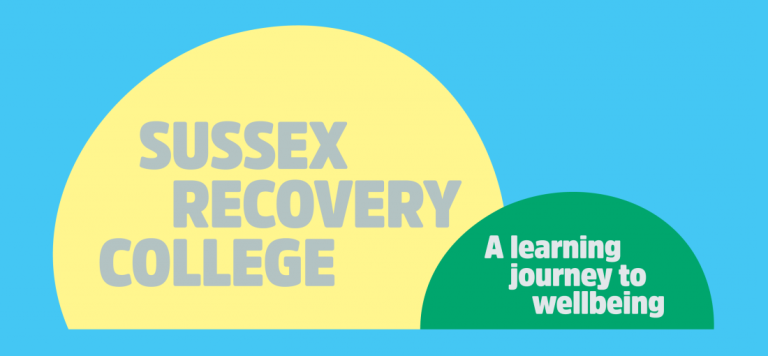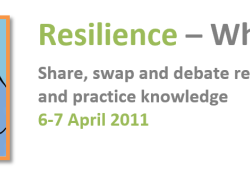Topic: Building resilience for well-being and recovery: what we learnt from co-producing a mental health recovery college course – Josh Cameron, University of Brighton
Resources: You can download Josh’s slides.
Summary: The mental health Recovery College course was co-developed by peer trainers, practitioners and an academic. Peer trainers are people with lived experience of mental health problems trained as tutors by a mental health Recovery College. We used the Resilience Framework to help design the course alongside our personal, practice and research expertise. It aimed to increase people’s resilience to respond to mental health challenges using people’s inner strengths and support around them.
We evaluated the course qualitatively (eg using interviews) and quantitatively (eg resilience scales). Findings suggest our collaborative approach, drawing on social learning theory, can effectively support resilience building. In contrast to the ‘pull your socks up’ approach to resilience, our course helped people recognise that resilience to cope with challenges comes from outside support as well as from developing inner strengths. So by the end of the course many learners saw asking for help as a resilient move not a sign of weakness. In resilient theory speak we see this as moving from an individual to an ecological understanding of resilience. In line with our social-justice view of resilience, there was also evidence of some learners challenging the adversities they faced in their lives rather than simply trying to adapt to them.
Biography: Josh Cameron worked as an occupational therapist in mental health services before becoming a University of Brighton lecturer. He became interested in resilience while researching return-to-work experiences of workers with mental health problems for his PhD. He is a member of the Centre of Resilience for Social Justice research centre at the University of Brighton, and Boingboing. He has recently become involved in Blackpool’s ‘Resilience Revolution’ collaborating in leading the research helping us to learn from what we are doing and to share what we find out about building resilient communities with the rest of the world.
Who might be most interested: Academics, practitioners, researchers, students, parents, carers, community workers, volunteers, public sector workers, young people, service users, people with lived experience of mental health problems.
This event took place on Friday 23 March 2018.
If you like what you see and you want more, More, MORE, why not subscribe to our mailing list? You’ll receive our email newsletter with details of our upcoming Resilience Forums, training and other events, news and resources (most of which are free!), and any other products and services that might be of interest. This is a web-based service and it is very easy to subscribe, unsubscribe or update your email address at any time.
The Resilience Forum is for ANYBODY (with a pulse!) involved with or interested in resilience research!


